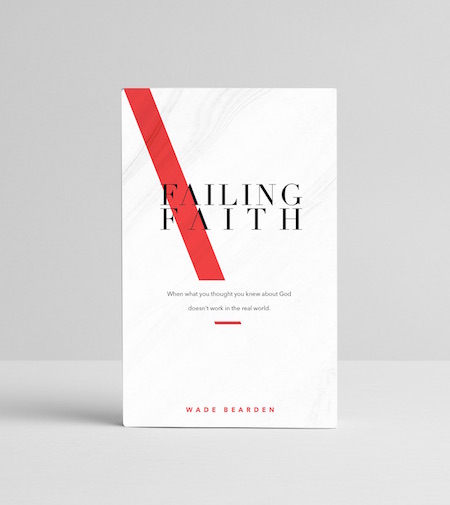
As I write this, it’s been a month, to the day—nearly minute—that my father passed away. Last night, I dreamed about the evening he died. I think that makes two times in the last week. It wasn’t an oddly exaggerated dream like so many dreams are. It was actually fairly close to what happened that night.
The family was gathered around dad in the ICU room. An oxygen mask was strapped to his face. I knelt at his feet, holding the ends of his toes. His breath grew shallow. Eventually, his chest stopped rising.
Currently, I’m sitting in my office listening to BJ Thomas’ “Mighty Clouds of Joy” on vinyl. The record spins around and around. It crackles and pops. Soon, it will play through the side and the album will be over. The turntable will stop rotating, followed by silence. This vinyl record is special to me because it’s the same one I listened to with my dad about three months ago. I play it now because it reminds me of him.
I want to write about grief. I want to talk about what I’ve gone through—what I’m sure I will continue to go through for at least a bit longer. It’s been a strange month. It’s true what they say, that real grief doesn’t hit you until after the funeral is over.
Grief isn’t systematic. Those five stages you hear about aren’t neatly arranged with distinct time frames and accompanying pictures. One moment you’re in denial, the next moment you’re listening to Eminem because you feel so angry. When you finally reach acceptance, you start the process over again. In A Grief Observed, a book that’s brought me much comfort these last few weeks, C.S. Lewis says:
For in grief nothing ‘stays put.’ One keeps on emerging from a phase, but it always recurs. Round and round. Everything repeats. Am I going in circles, or dare I hope I am on a spiral?
But if a spiral, am I going up or down it?
It’s the gift you never wanted, that always seems to keep giving.
Grief can also cause one to doubt God’s goodness. Deep grief attempts to drown out His voice. It tries to make you believe that God doesn’t care for you anymore—at least that’s how I’ve felt anyway.
I’ve learned that there are at least two kinds of doubt: intellectual doubt and emotional doubt. Intellectual doubt, in terms of Christianity, is struggling with rational belief in God, the resurrection of Jesus, etc. It’s what you believe (or don’t believe) in your mind. Emotional doubt is what you feel when you slow down enough to think.
Intellectually, I know God loves me. It’s emotional doubt that I struggle with at times. The feelings of loss. The feelings of hurt, pain, and moments of overwhelming sadness.
Recently, I’ve been drawn to the Psalms of Lament as a source of comfort. In a world overflowing with death, sickness, and Acute Myeloid Leukemia, I feel a deep connection to these passages. They’re raw, gritty, and unfiltered. These Old Testament texts are a window into unbridled human emotion. Take Psalm 22 for example (a psalm I relate to).
My God, my God, why have you forsaken me?
Why are you so far from saving me, from the words of my groaning?
O my God, I cry by day, but you do not answer,
and by night, but I find no rest. (1-2)
Maybe you’ve felt these emotions too, I’m not sure. Grief doesn’t only accompany death. Sometimes grief appears when you lose a job or find out you don’t mean as much to someone as you thought you did. But I’m slowly realizing this; in our grief, God wants us to be honest with Him—much like the author of Psalm 22.
While, at moments, my emotions tempt me to question God’s love, I find solace in knowing that my heavenly Father is okay with this. I don’t have to be afraid to talk to him about the dark corners of my heart. I am but a weak, wretched human being, and yet God loves me anyway. He lets me get angry; he lets me break down; he lets me question the things I know in my mind to be true. Then, after the glass has been shattered and laments have been made, He gently grabs the broom and sweeps it all away.
When I was a teenager, a girl told me she liked me, but she didn’t really like me (or maybe she didn’t only like me). I remember dad walking into my room one night, kneeling down next to my bed, and crying with me. “I know Wade, I know,” he said. Sometimes, I picture God doing this. I know Wade, I know.
My feelings may betray me, but, ultimately, I realize there is hope. Emotional doubt will come, but that doesn’t mean I have to set up residence in the desert.
Notice what Psalm 22 goes on to say:
In you our fathers trusted;
they trusted, and you delivered them.
To you they cried and were rescued;
in you they trusted and were not put to shame. (4-5)
I have to keep reminding myself of this verse (and others like it). Even when I don’t always feel God’s love, I do know that the faith of my father did not put him to shame and it will not put me to shame either. Whether I always realize it or not, I can trust that there will come a day when the turntable stops rotating and silence will follow; then, all of our pain will be put to rights.




